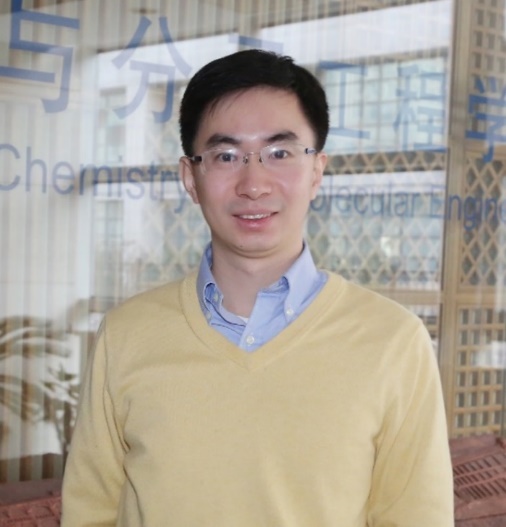
搜索网站、位置和人员

新闻与活动 活动信息
Chemistry Colloquium | Peng Zou:Spatially Resolved Profiling of Biomolecules via Genetically Encoded and Immuno-Proximity Labeling
时间
2024年5月16日(周四)
下午16:00-17:30
地点
西湖大学云谷校区E10-201报告厅
主持
西湖大学理学院PI 吴明轩 博士
受众
全体师生
分类
学术与研究
Chemistry Colloquium | Peng Zou:Spatially Resolved Profiling of Biomolecules via Genetically Encoded and Immuno-Proximity Labeling
时间:2024年5月16日(周四)下午16:00-17:30
Time:16:00-17:30, Thursday, May 16th, 2024
主持人: 西湖大学理学院PI 吴明轩 博士
Host: Dr. Mingxuan Wu, PI of School of Science, Westlake University
地址:西湖大学云谷校区E10-201报告厅
Venue: E10-201, Yungu Campus, Westlake University

邹鹏 特聘研究员 博导
北京大学
Prof. Peng Zou, Peking University
主讲人/Speaker:
Peng Zou is currently an associate professor with tenure at the College of Chemistry and Molecular Engineering of Peking University. He is jointly appointed as a principal investigator at the PKU-IDG/McGovern Institute for Brain Research and the PKU-Tsinghua Center for Life Sciences. Peng received his B.S. degree in Chemistry with a double major in Physics from PKU in 2007, and his PhD in Biological Chemistry from MIT in 2012. Following his postdoc training at Harvard University, Peng joined the faculty at PKU in 2015 and was promoted to a tenured associate professor in 2021. His lab focuses on inventing chemical tools for the spatiotemporally resolved mapping of biomolecules and biophysical signaling that underlie neuronal functions. This mainly follows three lines of efforts: free radical-based chemical probes for profiling proteins and RNAs in neurons, optical reporters for neural activities, and directed evolution platforms that drive technological advancements in the above two fronts. Peng is the recipient of the Life Chemistry Young Investigator Award from Chinese Chemistry Society in 2023, C&EN's Talented 12 Award from American Chemical Society in 2019, the OKeanos-CAPA Young Investigator Award at the Chemical and Biology Interface in 2020. Since 2023, he is a topic editor of ACS Bioconjugate Chemistry.
讲座摘要/Abstract:
Over the past decade, proximity-dependent labeling methods have emerged as powerful tools for mapping biomolecules in their native context. These methods often capitalize on the in situ generation of highly reactive intermediates for covalently tagging biomolecules located within nanometers to sub-micrometers from the source of labeling. In this talk, I will introduce a toolbox of genetically encoded photocatalytic labeling methods (CAP-seq and RinID) and immuno-proximity labeling (Immuno-PL) method. CAP-seq and RinID are capable of profiling the transcriptomes and proteomes of both membrane-bound and membrane-less organelles with visible light illumination, offering spatial and temporal control of labeling. Immuno-PL allows tagging biomolecules that are proximal to endogenous baits. Together, these methods portray a high-resolution map of the subcellular transcriptome and proteome, which provide a rich source for understanding cellular physiology.
讲座联系人/Contact:
理学院,周诗艺,邮箱:zhoushiyi@westlake.edu.cn
School of Science, Shiyi Zhou, Email: zhoushiyi@westlake.edu.cn

















